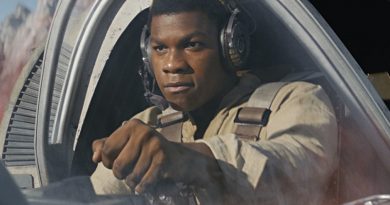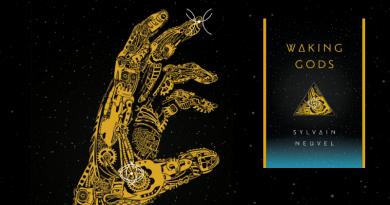Allston on Writing: Peer Review
 Star Wars author Aaron Allston shared words of wisdom on fellow writer Janine Spendlove’s blog a while back, and I just caught it recently. He discusses the importance of peer review in writing. The benefits, he noted, are analysis, distance, confirmation of translation, validation, and networking. For anyone interested in improving their own writing, don’t miss the important nuggets of advice in his post.
Star Wars author Aaron Allston shared words of wisdom on fellow writer Janine Spendlove’s blog a while back, and I just caught it recently. He discusses the importance of peer review in writing. The benefits, he noted, are analysis, distance, confirmation of translation, validation, and networking. For anyone interested in improving their own writing, don’t miss the important nuggets of advice in his post.
Also for aspiring writers, Allston has a new book on fiction plotting. Plotting: A Novelist’s Workout Guide is available as an ebook on his store site, the Amazon’s Kindle Store, and the iTunes iBookStore.
Here’s my favorite words of wisdom from Allston on peer review:
Instead, with fiction, the story may be for the writer, but the execution is for the reader. The story is a bridge engineered to carry the load of the story from the writer’s mind to the reader’s, allowing the reader to experience something like what the writer experienced. That’s what fiction is: vicarious experience.
So one benefit of a workshop is the fact that it helps the writer know how close he or she has come to delivering the exact experience into the minds of the readers. Even the most experienced authors can benefit from a clear idea of how close the reader’s experience is to the writer’s.
The writer will learn early on that it’s impossible to impart the same experience to the minds of all readers. At that point, subtlety and nuance begin to play a greater role in the writer’s toolbox, as the writer learns to use specific turns of phrase, specific forms of expression to cause the greatest number of readers to experience events “correctly.”
What sort of differences in experience do writers and readers have? Here are a very few examples:
- The writer might admire or like the protagonist, or at least forgive the protagonist for human failings, while the readers may dislike the protagonist.
- The writer may intend for a scene to cause the reader to focus on a mysterious detail, while the readers find themselves obsessing about the revelation of a new wrinkle in the relationship of two characters.
- A scene might be intended to evoke sympathy for an antagonist… and fail.
- A scene might exist so that the readers pick up on an important clue, and yet only 30% of the readers do so.
With experience, the writer can impart an ever-greater proportion of the intended experience to the broadest range of readers, and workshop evaluations can let the writer understand how close he or she came to doing so in any given draft.
How else can a writer discover whether the prose is doing what it’s supposed to? Here again, advance readers can provide the necessary feedback… though here, too, the group dynamics of a workshop experience, especially having the participants argue over what a particular scene accomplished or how they feel about a specific character, provides an instant comparison of reader perspectives.
- Hyperspace Theories: The Curious Case of Kathleen Kennedy’s Retirement - March 10, 2025
- Hyperspace Theories: SKELETON CREW Ahoy! - December 29, 2024
- Hyperspace Theories: WICKED Part I Rises to the Moment - December 6, 2024









